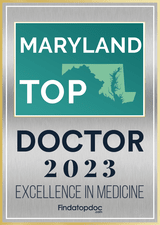You settle into a warm, comfortable bed, close your eyes and nothing happens, you just can’t fall asleep. Hours go by and still you’re awake. The next day you feel tired, grouchy, and are unable to focus. Does this sound familiar?
Sleepless nights happen to almost everyone at some time, but ongoing insomnia can indicate a deeper issue and could lead to further health concerns. Unfortunately, a common approach to treating insomnia includes prescription sleeping medications, which can cause side effects or even dependence. That’s one of the many reasons to consider an all-natural approach to treating your sleep problems. Acupuncture can be a very effective way to improve your sleep quality without side effects.
- Stick to a regular schedule.
- Plan to go to bed and wake up at the same time every day.
- Stay active. Exercise regularly, but not within a few hours of bedtime.
- Don’t eat large meals before bed.
- Try not to nap. If you really need to nap, try to keep it short, less than 45 minutes.
- Limit caffeine, alcohol, and nicotine. All of these can add to sleep problems.
- Relax. Try taking a warm bath, meditating, or reading to wind down before going to sleep.
One bad night…or an ongoing issue?
Occasional insomnia is a very common problem, affecting about one in four Americans. It can happen to anyone, but is more common in older adults. Its symptoms include:
- Difficulty falling asleep
- Waking up during the night
- Waking up too early
- Daytime fatigue and irritability
- Frustration and moodiness
Insomnia can be very frustrating, but it’s more than an annoyance. When insomnia becomes ongoing, or chronic, your body is unable to get the rest and renewal it needs so that you can feel your best. In fact, a lack of quality sleep can cause problems such as difficulty concentrating, diminished energy, low mood, and trouble performing everyday tasks. Since sleep strengthens the immune system, insomnia can leave you susceptible to many other health concerns. Luckily, you don’t have to just “put up with” chronic insomnia.
How acupuncture can help
According to the theories of acupuncture and Chinese Medicine (CM), conditions such as insomnia are a sign of an imbalance in Qi (pronounced “chee”), the vital energy that animates the body and protects it from illness.
- Do you have difficulty falling asleep?
- Do you have difficulty staying asleep?
- Is your sleep filled with vivid dreams?
- Is it difficult to calm your mind at night?
- Is it difficult to sleep on your back? This can relate to a excess condition of the Lungs or Heart meridians.
- Do you only sleep on your back with outstretched arms? This can reflect a pattern of excess heat.
- Do you prefer to sleep on your stomach or side? This could indicate a deficient condition.
This imbalance can stem from a number of causes such as stress, anxiety, medications, depression, and chronic pain. To determine the underlying causes of your insomnia, your acupuncturist will take into account many factors, including your lifestyle and emotional and mental well-being. They will then work to restore the balance and flow of Qi by inserting fine, sterile needles at specific points along the body.
Your acupuncturist may also suggest aromatherapy, yoga, meditation, or other additional therapies. You may find that you sleep better after your very first session, though you will most likely receive the most benefit from a series of treatments.
Your acupuncturist can get to the root of your sleep issues by taking into account all of the factors that may be contributing to your sleep disturbance. With this ancient form of health care, you can treat your symptoms, improve your overall health and well-being, and start looking forward to a great night’s sleep, every night.
References:
Overcoming Insomnia: How to achieve peaceful quality sleep. Acupuncture.com. Accessed Feb. 1, 2008. Link
Insomnia. MayoClinic.com. March 16, 2007. Link
The Complete Idiot’s Guide to Acupuncture. Alpha Books, 2000.





